
Ibudence Oral Suspension
Manufacturer
Credence Healthcare
Salt Composition
Ibuprofen (100mg) + Paracetamol (162.5mg)
Key Information
Short Description
Ibudence Oral Suspension is a combination of two medicines, ibuprofen and paracetamol, used to reduce pain and inflammation in children and infants.
Dosage Form
Oral Suspension
Introduction
Ibudence Oral Suspension is a combination of two medicines, ibuprofen and paracetamol. Both of these belong to a class of medicines known as non-steroidal anti-inflammatory drugs (NSAIDS). Ibudence Oral Suspension helps lower body temperature (fever) and reduce pain and inflammation (redness and swelling) both in infants and children.
Directions for Use
Maintain a log of your child’s temperature. If you do not see any improvement, contact your child’s doctor for advice. Give plenty of fluids to your child if diarrhea occurs as a side-effect. Never give any other medicine formulation containing paracetamol along with this medicine as that may lead to serious side effects. Stop the medicine and consult your child’s doctor in case your child exhibits allergic rash or stomach pain soon after taking this medicine. If Ibudence Oral Suspension does not seem to be helping your child, contact your doctor for advice. Do not give extra doses.
Safety Information
Side Effects
No common side effects listed.
How it works
Ibudence Oral Suspension is a combination of two medicines: Ibuprofen and Paracetamol. It works by blocking the release of certain chemical messengers that cause fever, pain and inflammation (redness and swelling).
Quick Tips
Maintain a log of your child’s temperature. If you do not see any improvement, contact your child’s doctor for advice. Give plenty of fluids to your child if diarrhea occurs as a side-effect. Never give any other medicine formulation containing paracetamol along with this medicine as that may lead to serious side effects. Stop the medicine and consult your child’s doctor in case your child exhibits allergic rash or stomach pain soon after taking this medicine. If Ibudence Oral Suspension does not seem to be helping your child, contact your doctor for advice. Do not give extra doses. Give plenty of fluids to your child If diarrhea occurs as a side-effect
Related Medicines
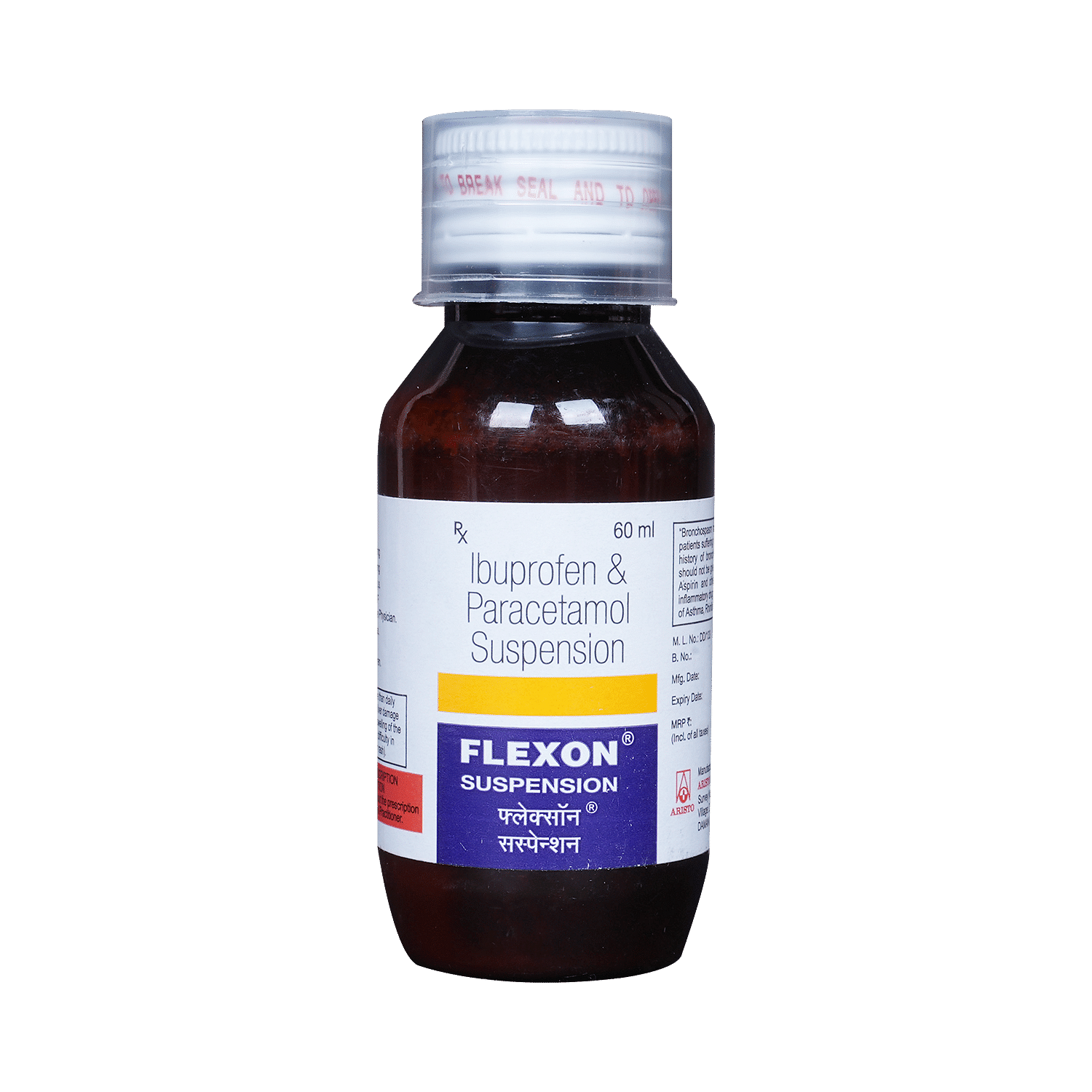
Flexon Suspension
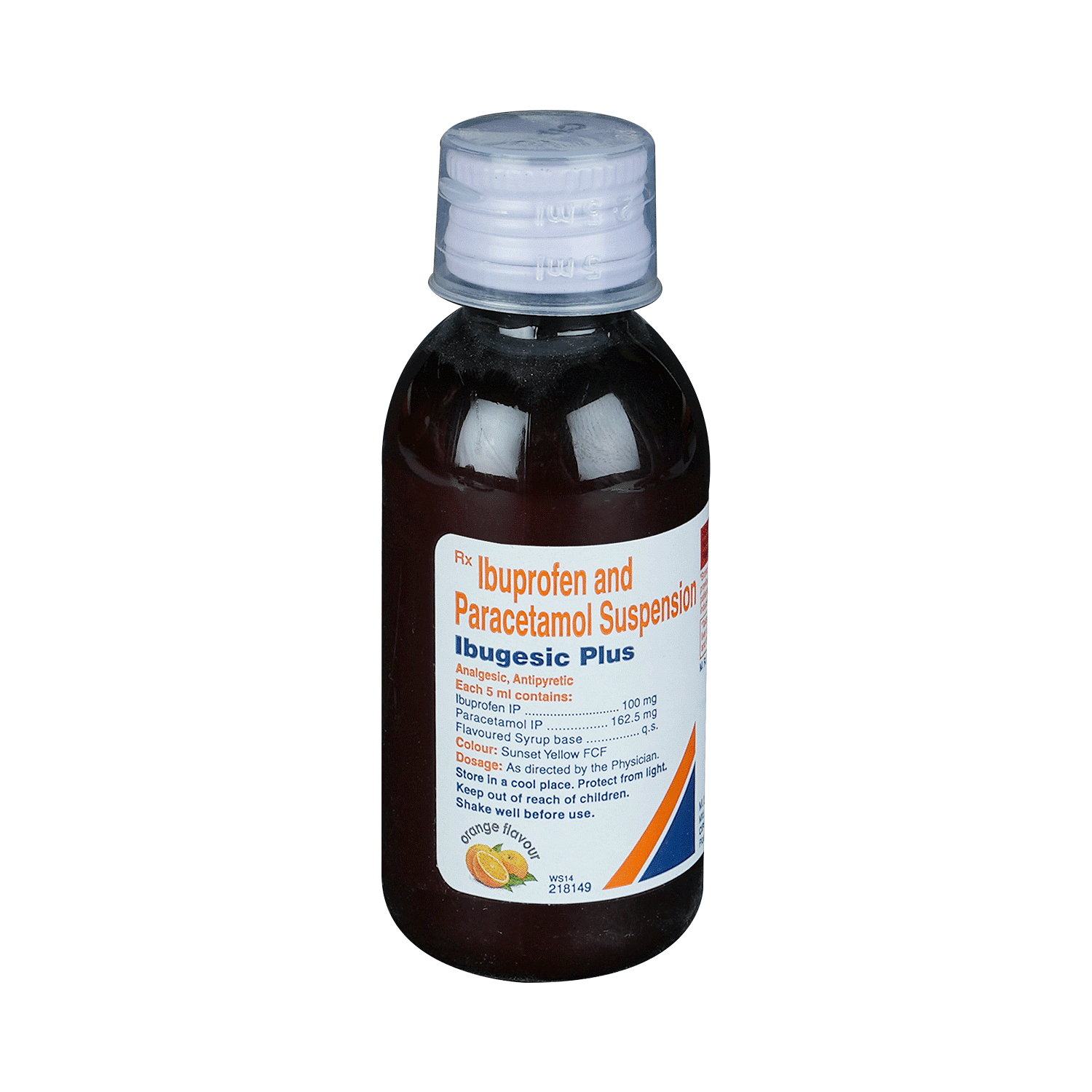
Ibugesic Plus Suspension Orange
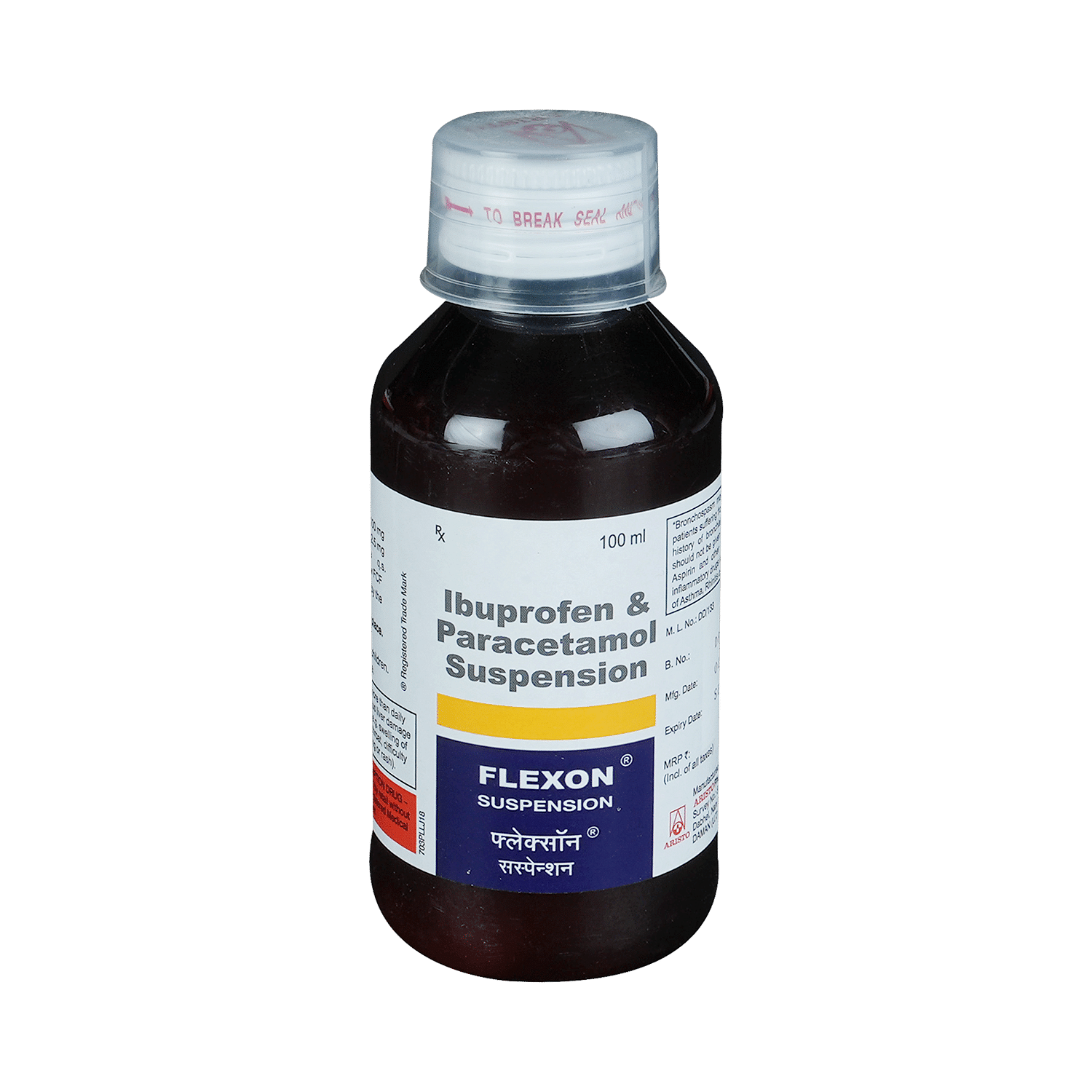
Flexon Suspension
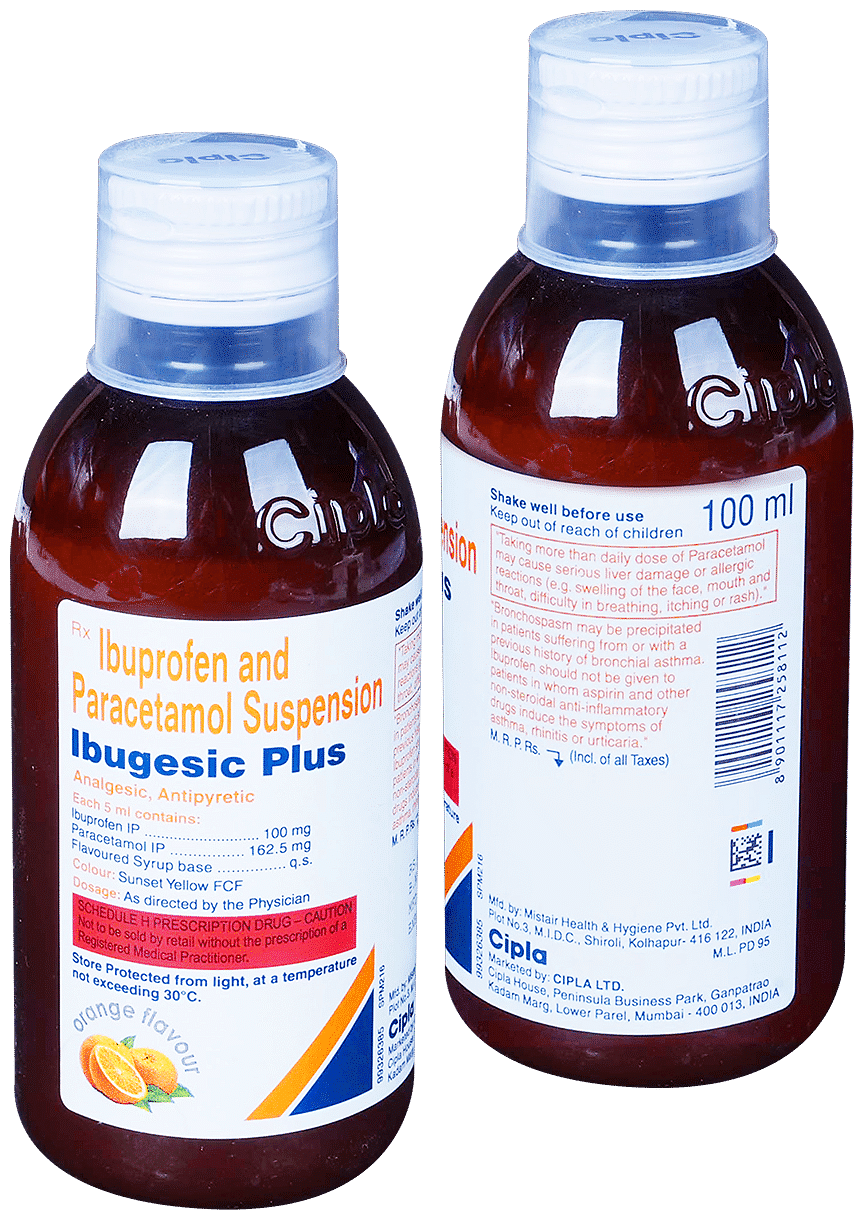
Ibugesic Plus Suspension Orange
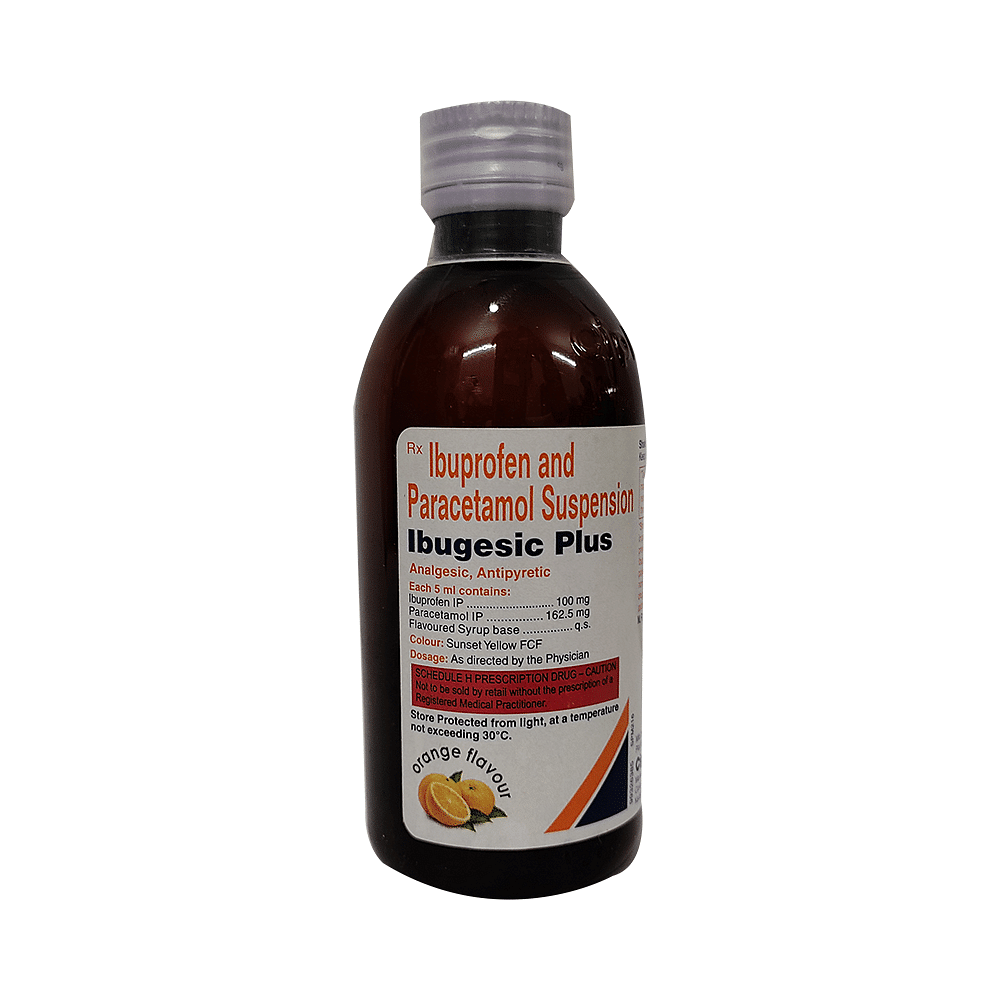
Ibugesic Plus Suspension Strawberry
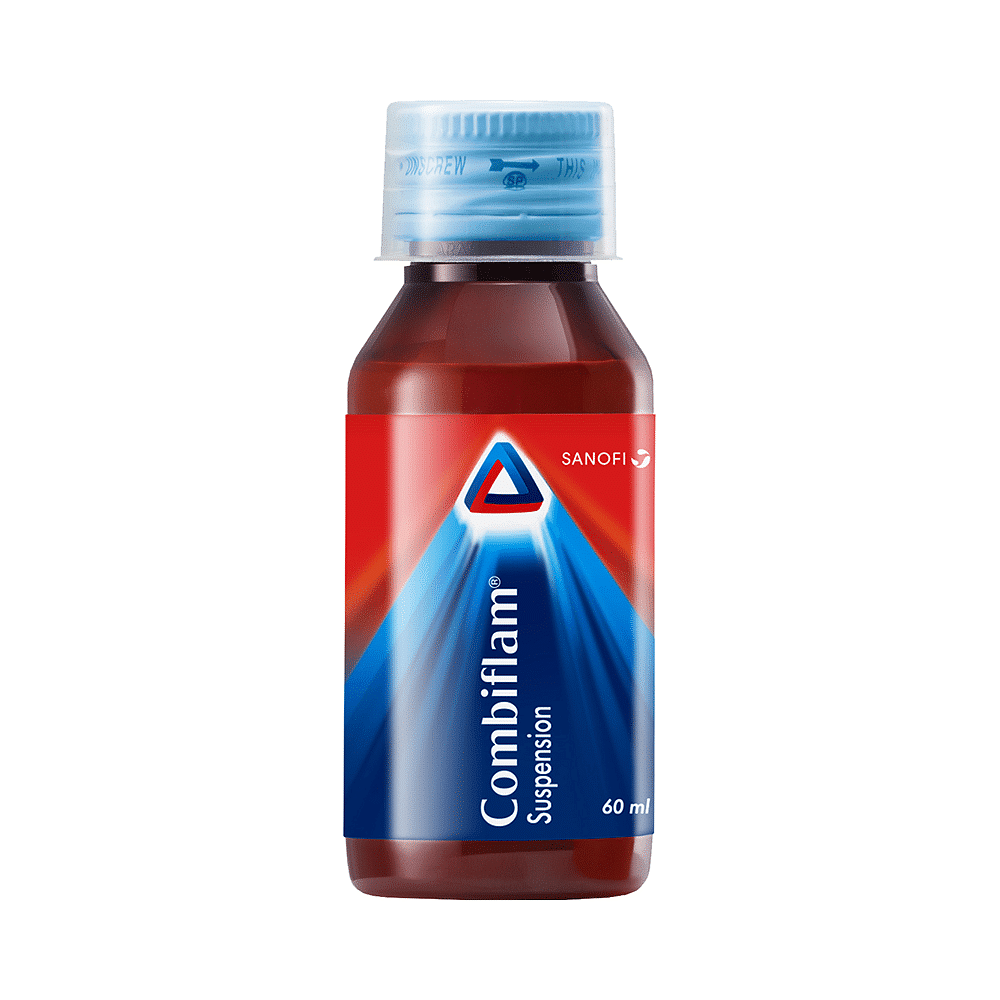
Combiflam Suspension

Ibulife Oral Suspension
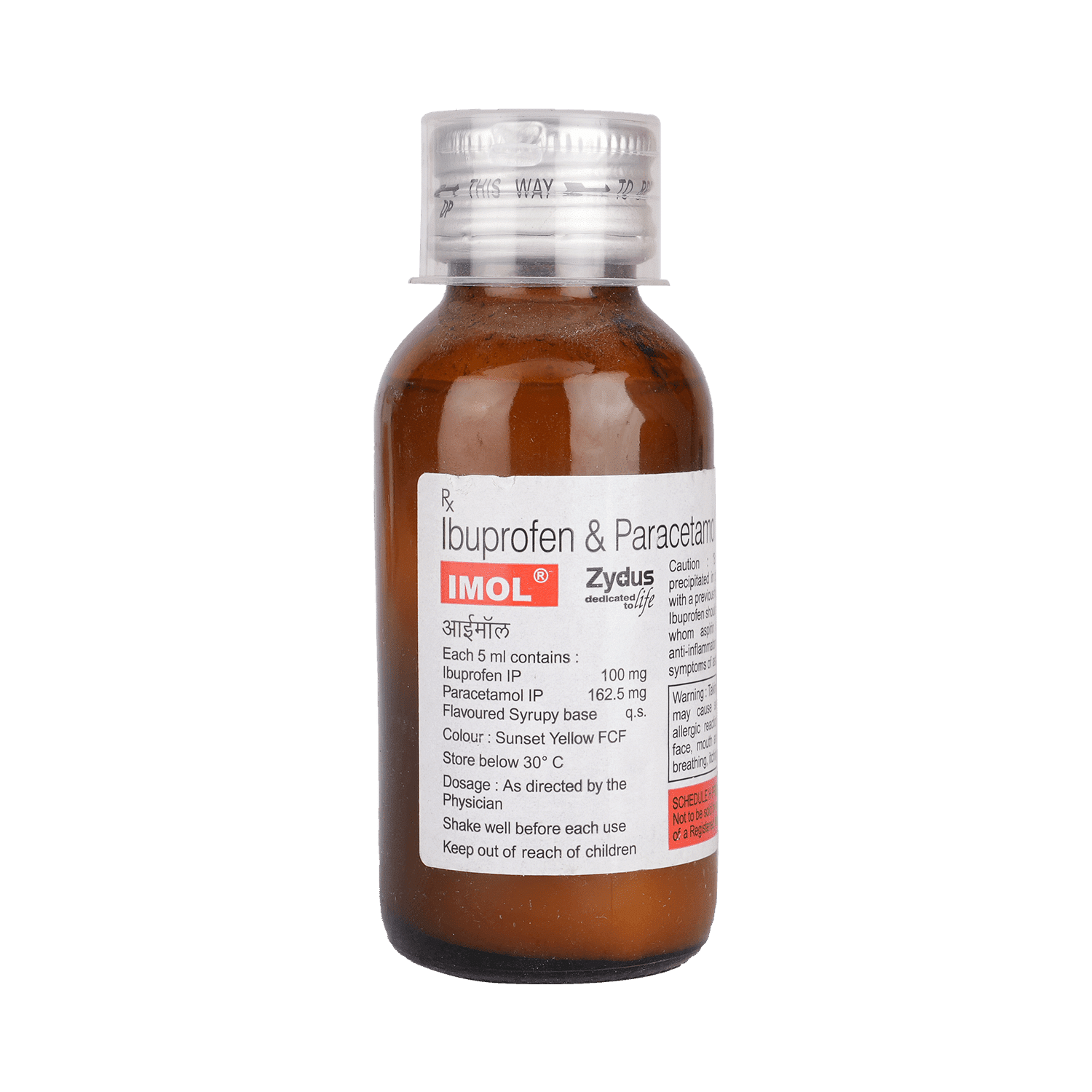
Imol Suspension

Ibamit P Oral Suspension

Anodin P Oral Suspension
Frequently asked questions
When will my child feel better?
The duration of treatment with Ibudence Oral Suspension for a child with bacterial or viral infection depends on the severity of the condition. It may take several days to weeks, and your doctor will advise you on the specific dosage and frequency of administration. You should observe improvement in your child's pain and fever as they progress through the course of treatment. However, if your child continues to feel unwell even after completing the full prescribed course, consult with their doctor.
My child’s fever is persistent even after taking Ibudence Oral Suspension. What should I do?
If the fever does not subside after initial doses of Ibudence Oral Suspension, it may indicate a lingering infection (viral or bacterial). Consulting your child's doctor is essential to determine appropriate treatment.
Can I increase or decrease the dose of Ibudence Oral Suspension for my child by myself according to the severity of illness?
No, altering the dosage of Ibudence Oral Suspension without consulting a doctor is not recommended. Increasing the dose may lead to toxicity while decreasing it can potentially worsen symptoms. Always seek guidance from your child's doctor if you notice any changes in their condition and require adjustments to their medication.
How should Ibudence Oral Suspension be stored?
Ibudence Oral Suspension should be kept at room temperature, away from direct heat, light, and in a dry area. Remember that all medicines should be kept out of reach and sight of children to prevent accidental ingestion.
Can all children be given the same dose of Ibudence Oral Suspension?
No. The appropriate dose of Ibudence Oral Suspension varies depending on age, weight, and individual child's condition. A doctor will determine this dosage for each child. Always consult your child's doctor to avoid any miscalculation or unintended dosage.
Can I give Ibudence Oral Suspension on a routine basis when my child is taking a vaccine?
Ibudence Oral Suspension usually does not interfere with the ingredients in vaccines or cause a negative reaction after vaccination. However, it's best to allow your child to recover from the current illness before administering any new medications and ensure they are fully recovered. Once your child begins to feel better, you can then administer the vaccine.
Are there any serious side effects of Ibudence Oral Suspension for my child?
Although Ibudence Oral Suspension is generally well-tolerated by children, if your child experiences prolonged vomiting, unusual swelling in the body (particularly around the face, limbs, and abdomen), a pallor, weakness, reduced urination, or experience severe allergic reactions, seek immediate medical attention.


